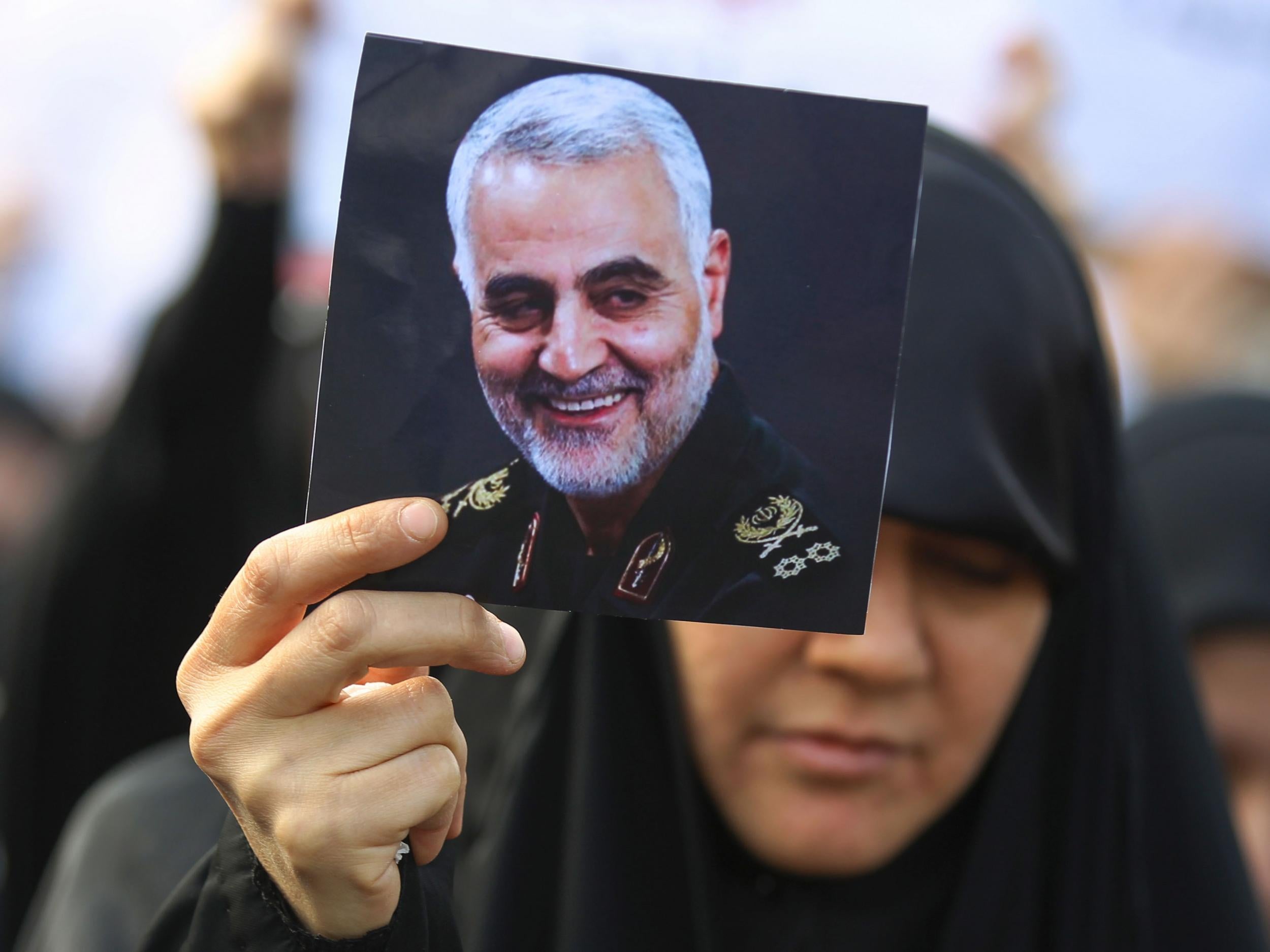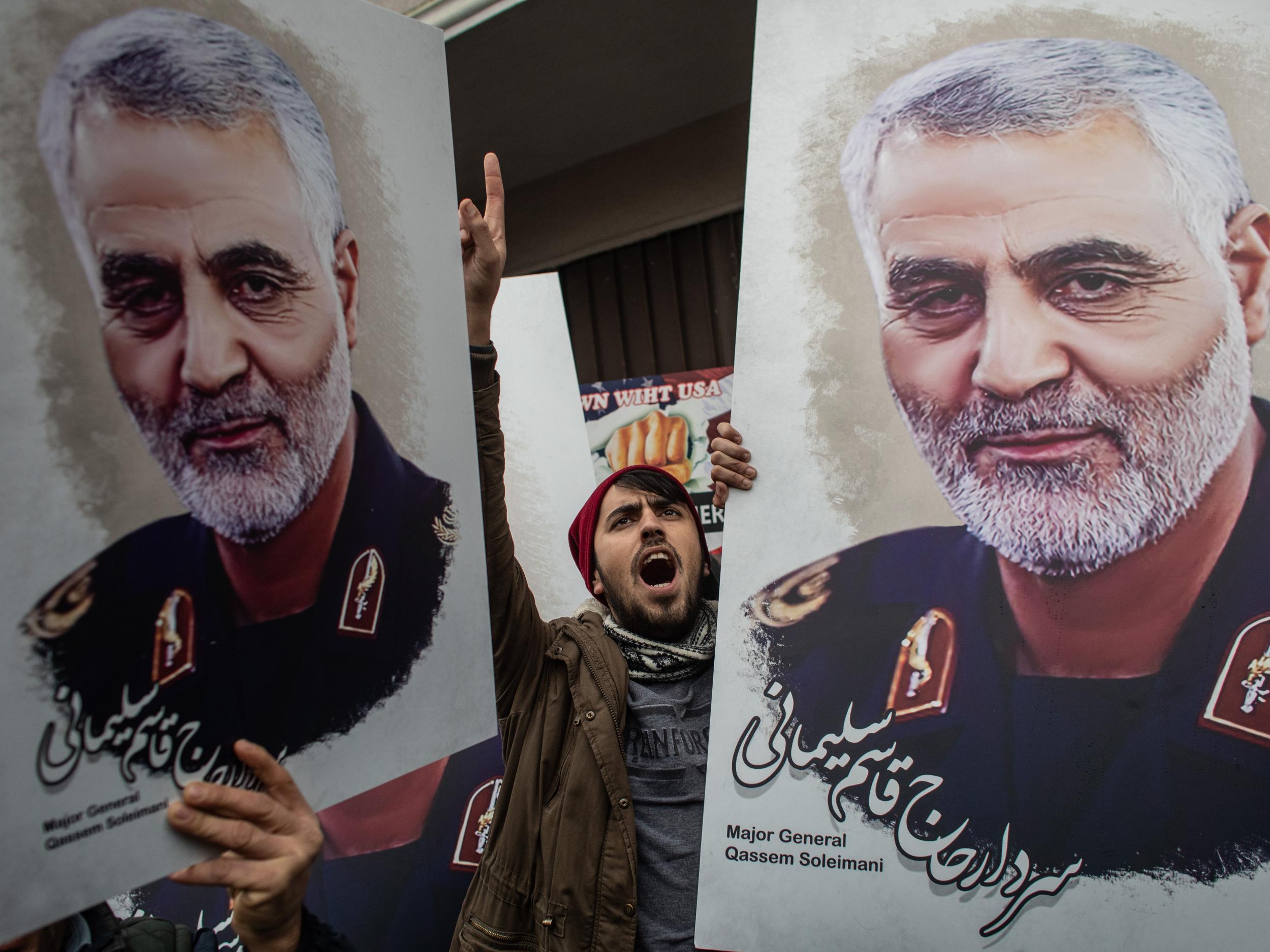Revenge for Qasem Soleimani’s death still arriving, but could be slowed by coronavirus
Attack on airbase in Iraq – which killed two Americans and one British medic – shows that US has not been forgiven, writes Kim Sengupta


The attack on Taji airbase in Iraq, killing two Americans and a Briton, came two weeks after the leadership of a powerful Shia militia announced that its restraint over the assassination of the Iranian commander Qasem Soleimani by the US would end by the middle of this month.
The missiles came on what would have been the 63rd birthday of General Soleimani, the head of the Quds Force of the Iranian Revolutionary Guards Corps. A similar attack, on another US base in December was the reason given by Donald Trump for ordering the killing – prompting the Iranians to retaliate by firing missiles at two more bases.
The launching on Wednesday night of 30 Katyusha rockets from trucks at Taji, with 18 landing inside the base, causing serious injuries to five people as well as the fatalities, was followed by US airstrikes on facilities in the Albu Kamal area, used by Kataib Hezbollah across the border in Syria, in which 25 fighters were reportedly killed.
The question is whether what happened was the beginning of an offensive by Iran’s allied militias to avenge General Soleimani and the Kataib leader Abu Mahdi al-Muhandis, who died in the same American attack, with their avowed aim of driving US forces out of Iraq, or a symbolic gesture to remind Washington that their “martyr” is not forgotten and their loyal fighters are still very much around.
This would be an opportune time, it can be argued, to carry out strikes against the US with the Trump administration seemingly floundering in its response to the coronavirus outbreak and the military embarking on the complex process of disengaging from Afghanistan after the signing of a peace deal with the Taliban.
The militias have been thirsting for action ever since the death of Soleimani. General Hossein Kanani Moghadam, a former head of the IRGC and a friend and comrade of the al-Quds chief told me in Tehran last month how he had received calls for revenge along with calls of condolence in the hours after the killing.
“I was contacted by groups in many countries – in Iraq, Syria, Yemen, Afghanistan, north Africa, other parts of Asia – all saying they wanted to avenge the death of martyr Soleimani,” he said.
“But I advised them not to do anything, to wait to see what happens, what the political consequences will be. Also on a military level, the US forces were at a high level of alert, you do not fight the enemy when he is fully prepared and expecting an attack.

“Anyway, the Iranian government had already retaliated at Ain al-Asad [the base hit following the assassination]. The Americans thought Iran would not do anything, but this operation was carried out. There may be something else in the future, who knows…”
But there are also strong reasons why this is not likely to be the start of a campaign against the US. All the indications following the Iranian retaliation at Ain al-Asad and the second base near Erbil were that both sides were anxious not to escalate hostilities.
There are also important political considerations within Iran. The very low turnout in the country’s parliamentary election showed the level of popular disillusionment with the establishment. This discontent and disbelief was then further highlighted by what was seen as an attempt at an official cover-up of the spread of coronavirus in the country.
Iran has since then emerged as one of the main sources of Covid-19 outside China and the government has announced that it is mobilising all resources including the armed forces and with medical staff who die designated “martyrs”.
Coronavirus has heavily damaged an economy already badly hit by the punitive sanctions imposed by the Trump administration after it withdrew from the deal between international powers and Iran on the country’s nuclear programme.
Iran has now asked the IMF for $5bn in emergency funding to tackle the outbreak and that may not be easy to get if it appears to be embarking on military operations while asking for aid in its war against coronavirus. We wait to see what happens next, but, for the time being, the demands of fighting this extraordinary and ever-growing epidemic may mean that a man-made crisis with prolonged violent consequences can be avoided for the time being.
Join our commenting forum
Join thought-provoking conversations, follow other Independent readers and see their replies
24Comments